The two most compelling arguments
Most compelling arguments are:
- Selecting a career that you love and enjoy no matter the pay scale because if you love your work, you will be happy;
- Considering a career in business because it gives one infinite career option.
The one with a logical error in it but is still important:
- Considering a career in education since it is the best way to make a difference in the world.
The most compelling arguments are those of the grandmother and the father. These tow arguments engage the listener or the reader into deep thoughts of their truthfulness. They cannot be easily dismissed unless one thinks of them critically. This is why I selected them as the most compelling arguments.
The statement by the mother has a logical error but can still be considered important.
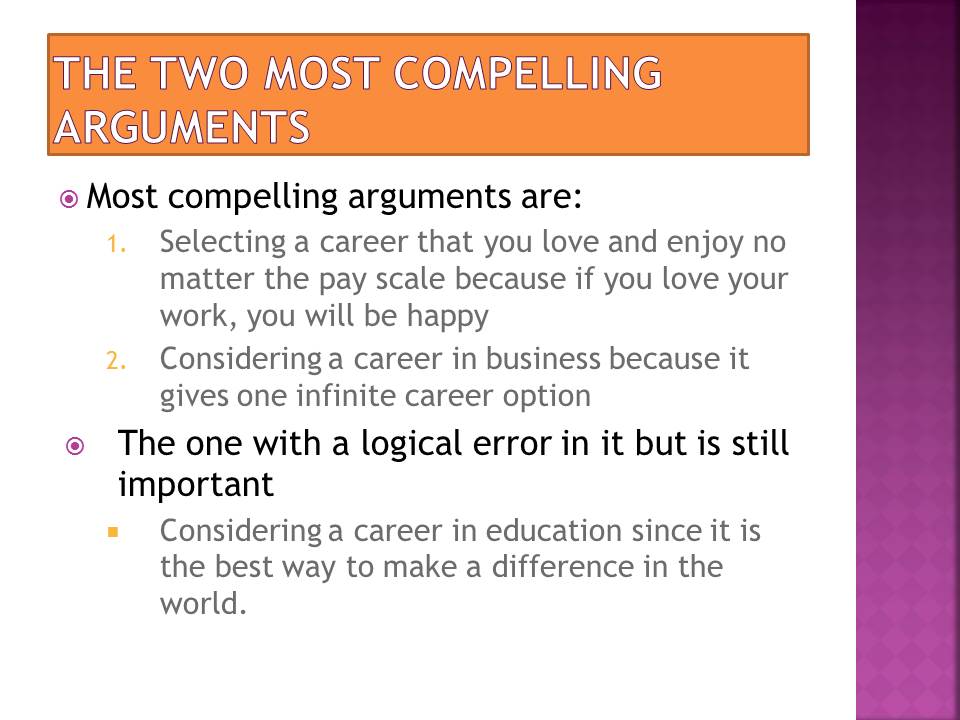
Errors in truth within the arguments
The statements have:
- logical and factual errors: there is evidence of hasty generalization;
- Informal fallacies: the premises fail to fully support the conclusion.
It is false to link:
- Happiness to love for work;
- Infinite career options to business courses.
The first selected argument (that of the grandmother), may be compelling but has an error in truth. The argument has an informal fallacy based on its strong inference. Such inductive arguments can never be absolutely true or entirely useless. Since this argument recommends its conclusion with a greater degree of probability, it can be said to be strong.
The second argument made by the father tends to link infinite career options to business career choices. Such an argument has a false premise which makes the conclusion to be false. Despite having some degree of probability, the argument can be misinterpreted.
The image illustrate another example of an argument with a logical error.
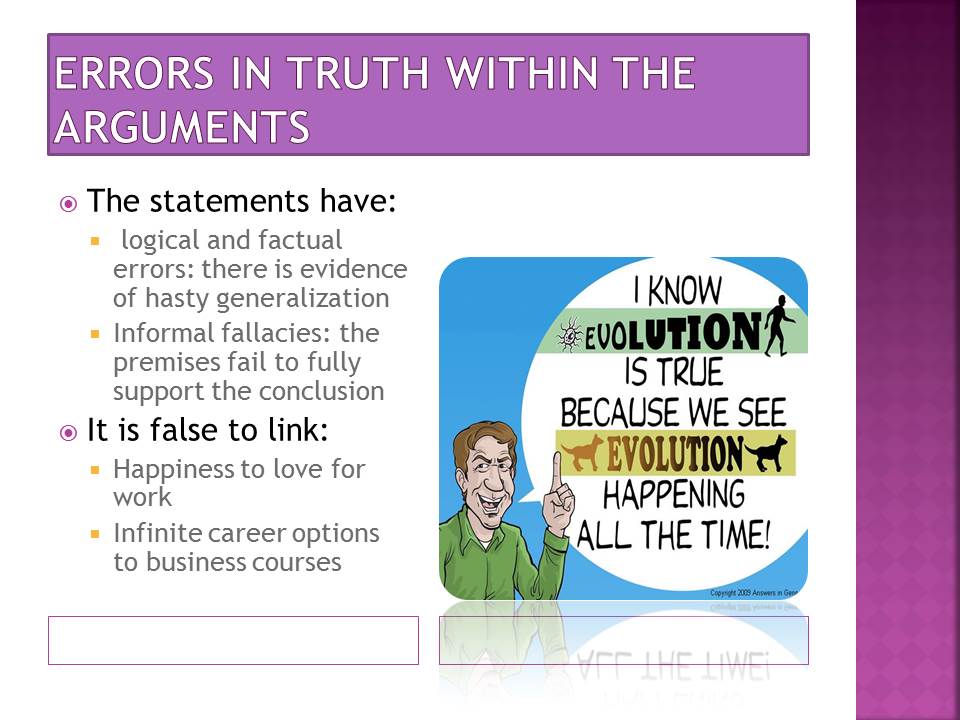
Errors in validity
Valid arguments must have:
- True premises;
- True conclusions (Goodwin, 2000).
The second argument has an error of validity:
- It has false conclusion;
- It also has false premises.
The first argument has valid premise but false conclusion.
The one error of validity identified in the arguments is that of false premises and conclusions. If the individual being referred to has interest in music he cannot select a career in business or education. But the first argument has a logical premise. The individual is requested to select a career in whatever area he is interested in.
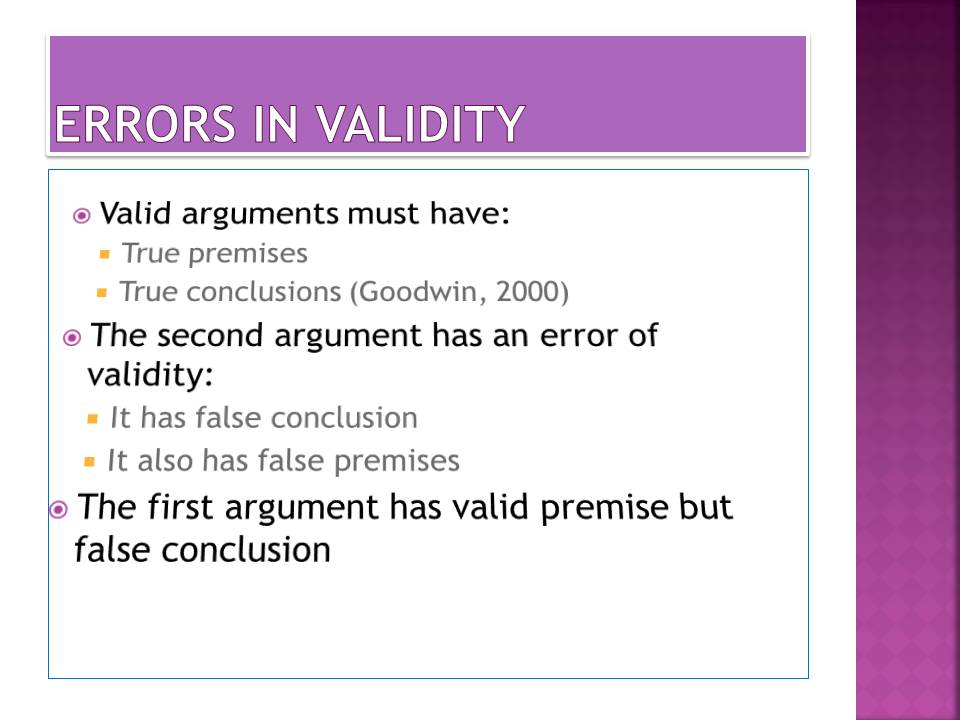
Logical restatement of the arguments
The first argument can be restated as follows:
- You need to select a career you love because you will always enjoy your work.
The second statement can be restated as follows:
- You need to consider a career in business because it will expand your career options.
The restatements of these two argument increases the degree of their probability in addition to validating both the premises and the conclusion. The statements are now more logical and can be used to convince someone into the individual action.
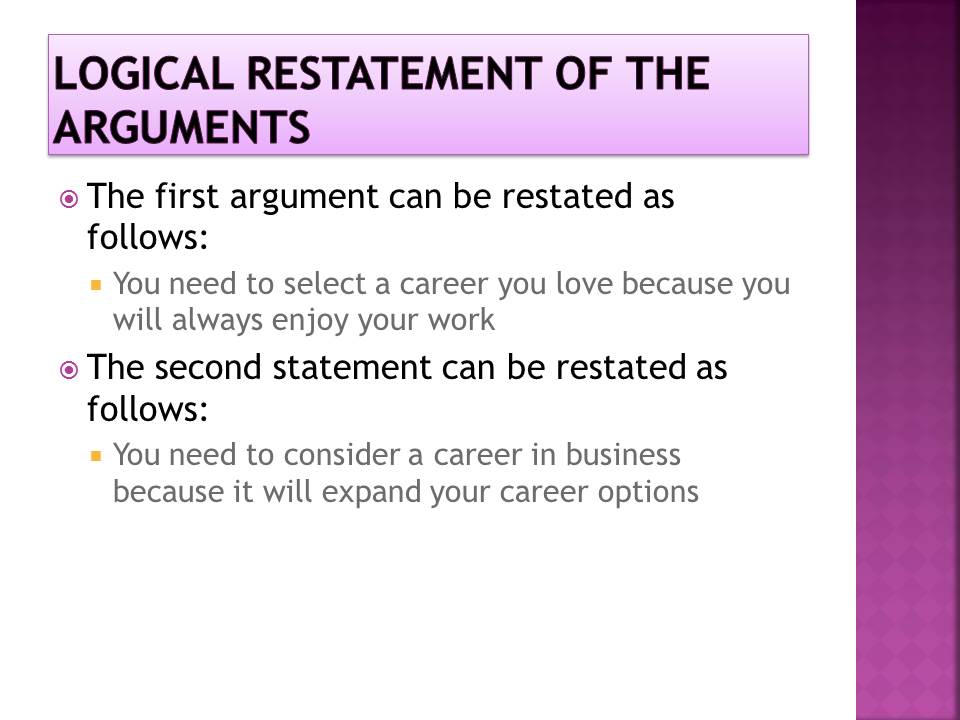
Criteria used for evaluation
The criteria used is based on the concept of argument mapping (Paul & Elder, 2008).
The purpose of mapping is to uncover the logical structure of the arguments (Timo, et al., 2009).
The process of mapping looked at:
- Conclusion;
- The reason;
- Premise;
- Objection;
- Rebuttal.
The steps can be used for evaluating all arguments. Argument mapping can be used to show the logical structure of statements. It achieves this through breaking up the arguments into its constituents claims and identifying the relationships between the claims.
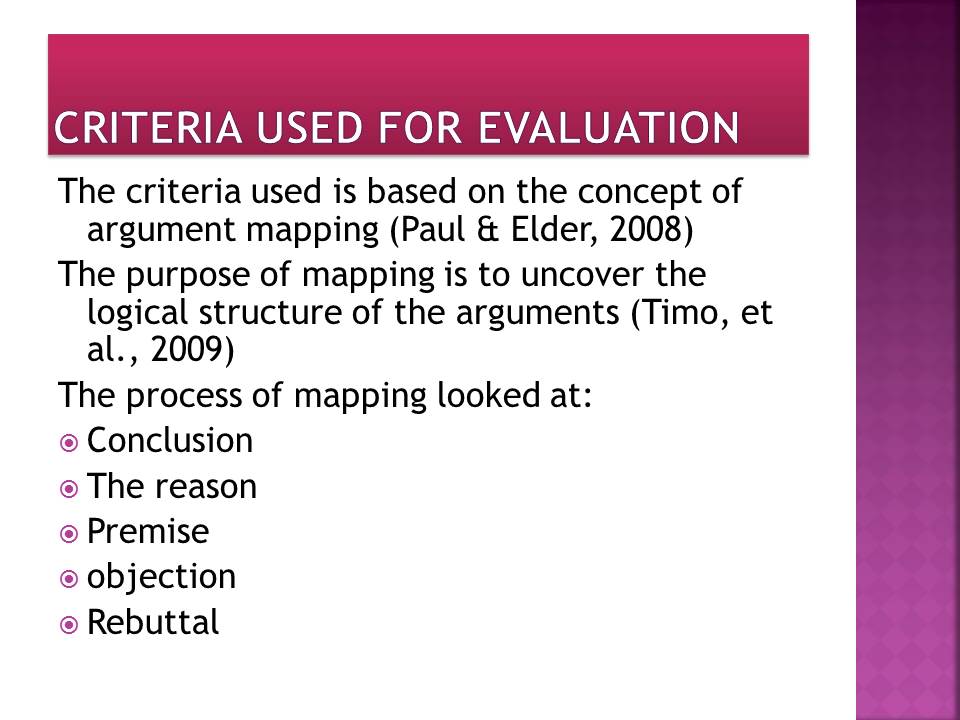
References
Goodwin, Jean 2000. ‘Wigmore’s Chart Method’ Informal Logic, vol 20 no 3, pp. 223-243.
Paul R & Elder L 2008, The thinker’s guide to fallacies: The art of mental trickery and manipulation, Foundation for Critical Thinking Press, Dillon Beach, CA.
Timo T, Gelder F P, & Sytske T 2009, Critical Thinking: Reasoning and Communicating with Rationale, Pearson Education Benelux, New York.